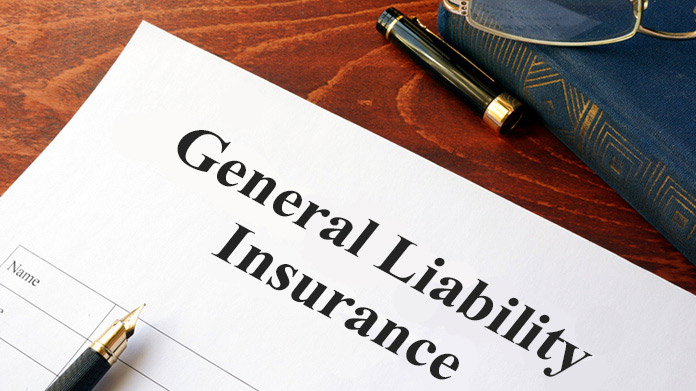Introduction
In today’s unpredictable business landscape, protecting your small business from potential risks is more important than ever. General liability insurance serves as a foundational policy that safeguards against common liabilities that can arise during day-to-day operations. This guide will delve into what general liability insurance is, why it’s essential for small businesses, what it covers, and how to choose the right policy.https://paknokri.online/2024/10/31/best-college-or-university-for-your-goals/
| Heading | Details |
|---|---|
| What is General Liability Insurance? | Overview of the insurance type. |
| Importance of General Liability Insurance | Why small businesses need it. |
| Coverage Areas | What is typically covered under the policy. |
| Exclusions | What is not covered by general liability insurance. |
| How to Choose the Right Policy | Tips for selecting the best insurance for your needs. |
| Cost of General Liability Insurance | Factors influencing the cost of premiums. |
| Conclusion | Summary and final thoughts. |
What is General Liability Insurance?
General liability insurance is a type of business insurance that protects small businesses from financial loss due to claims of injury, property damage, or negligence. It provides coverage for legal fees, settlements, and medical expenses that may arise from such claims. Having this insurance in place helps small businesses manage risks and ensures financial stability in the face of unexpected challenges.
Importance of General Liability Insurance
For small businesses, the importance of general liability insurance cannot be overstated. Here are a few key reasons why it is essential:
- Financial Protection: It covers legal expenses associated with claims against your business, allowing you to focus on operations rather than litigation.
- Credibility: Clients and customers are more likely to trust a business that is properly insured. It adds credibility and professionalism to your operation.
- Contractual Requirements: Many clients require proof of general liability insurance before they will engage in business, making it a necessity for securing contracts.
Coverage Areas
General liability insurance typically covers:
- Bodily Injury: If a customer or visitor is injured on your business premises, this coverage can help pay for their medical expenses.
- Property Damage: Covers damages to someone else’s property resulting from your business operations.
- Personal and Advertising Injury: Protects against claims of slander, libel, or false advertising.
- Legal Fees: Includes coverage for legal costs associated with claims, regardless of the outcome.
Exclusions
While general liability insurance is comprehensive, it does have exclusions. Here are a few things that are generally not covered:
- c: Claims arising from professional services or advice typically require professional liability insurance.
- Employee Injuries: Employee injuries are usually covered by workers’ compensation insurance, not general liability.
- Intentional Damage: Any intentional acts that result in damage or injury are excluded.
How to Choose the Right Policy
Selecting the right general liability insurance policy involves considering several factors:
- Assess Your Risks: Evaluate the specific risks associated with your business and choose a policy that addresses those risks.
- Compare Quotes: Obtain quotes from multiple insurance providers to find the best coverage at a competitive price.
- Check Reviews: Research the insurance company’s reputation and customer service track record.
- Consult with an Insurance Agent: An experienced agent can help you navigate the complexities of insurance policies and ensure you select the best coverage for your needs.
Cost of General Liability Insurance
The cost of general liability insurance can vary based on several factors, including:
- Business Type: Certain industries may have higher risk levels and, therefore, higher premiums.
- Location: Insurance rates can differ based on geographic area.
- Claims History: A history of claims can lead to higher premiums.
- Coverage Limits: Higher coverage limits generally result in higher premiums.
On average, small businesses can expect to pay between $400 and $1,500 annually for general liability insurance, but it’s essential to get quotes tailored to your specific business situation.
Conclusion
General liability insurance is a crucial investment for small businesses, providing essential protection against a range of risks. By understanding the coverage, importance, and how to choose the right policy, you can ensure that your business is well-protected against unforeseen circumstances. Don’t wait until it’s too late—consider securing general liability insurance today to safeguard your business’s future.
Frequently Asked Questions (FAQs)
1. What is the difference between general liability and professional liability insurance?
General liability insurance covers claims related to bodily injury and property damage, while professional liability insurance covers errors and omissions in professional services.
2. Is general liability insurance required by law?
While it is not legally required for all businesses, many clients and contracts may require proof of insurance before engaging in business.
3. Can I bundle general liability insurance with other types of insurance?
Yes, many insurance providers offer business owner’s policies (BOPs) that bundle general liability with property and other coverages.
4. How can I lower my general liability insurance premium?
You can lower your premiums by implementing risk management strategies, maintaining a clean claims history, and shopping around for competitive quotes.
5. Does general liability insurance cover injuries that occur off my business premises?
Generally, no. General liability insurance typically covers incidents that occur on your business premises. For coverage off-site, additional endorsements or policies may be necessary.
6. What should I do if I have a claim?
If you have a claim, contact your insurance provider immediately to report the incident and begin the claims proces










